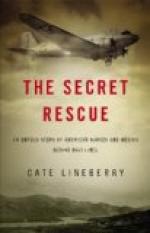“Now let me tell you something, Gale,” said Cowan. “I may not be so nice as you and Fletcher and Devoe and a lot more of your sort, but I’m not an out-and-out rascal and traitor! And I didn’t think you’d put that on me, by Jove! I’ve no love for some of the fellows in this college, nor for Mills, and I wouldn’t care if we got beaten—” He paused. “Yes, I would, too; I want Robinson to get done up so hard that they’ll throw that cheat Brill out of there. But I want you to understand right here and now that I’m not cad enough to sell signals.”
“I beg your pardon, Tom,” said Paul earnestly. “I didn’t think it of you. Only, when Brill said he’d seen you and that you were feeling sore, we—I—”
“Oh, so it was Fletcher that suspected it, was it?” demanded Cowan.
“No more than I,” answered Paul stoutly. “We neither of us really thought you’d turn traitor, but I was afraid that, feeling the way you naturally would, you might thoughtlessly say something that Brill could make use of. That’s all”
Cowan looked doubtful for a moment, then he sniffed.
“Well, all right,” he said finally. “Forget it.”
“You’re going out to the game, aren’t you?” Paul asked.
“Yes, I guess so. What’s Fletcher think of being laid off?”
“Well, he doesn’t seem to mind it as I thought he would. I—I don’t know quite what to make of him. It almost seems that he’s—well, glad of it!”
“Huh! You’ve got another guess, my friend.”
“How’s that? What do you mean?”
“Nothing much; only I guess I’ve got better eyes than you,” responded Cowan with a grin. After a pause during which he rearranged the objects on the mantel-shelf to his satisfaction, he turned to Paul again:
“Say, do you think Fletcher and I could get on together if—well, if we knew each other better?”
“I’m sure you could,” answered Paul eagerly.
“Well, I think I’d like to try it. He—he’s not a bad sort of a chap. Only maybe he wouldn’t care to—er—”
“Oh, yes, he would,” answered Paul. “You’ll see, Tom.”
“Well, maybe so. Going? Good luck to you. I’ll see you on the field.”
Paul hurried around the long curve of Elm Street toward Pearson’s boarding-house, where the players were already gathering for luncheon. He found Neil on the steps and dragged him off and down to the gate.
“It’s all right,” he said. “I found him and asked him, and I wish I hadn’t. He was awfully cut up about it; seemed hurt to think I could suspect such a thing. Though, really, I didn’t quite suspect, you know.”
“I’m sorry we hurt his feelings,” said Neil. “It was a bit mean of me to suggest it.”
“He’s going to stay for a while,” went on Paul. “And—and—Look here, chum, don’t you think that if—er—you tried you could get to like him better? From something he said to-day I found out that he thinks you’re a good sort and he’d like to get on with you. Maybe if we kind of looked after him we could—oh, I don’t know! But you see what I mean?”




